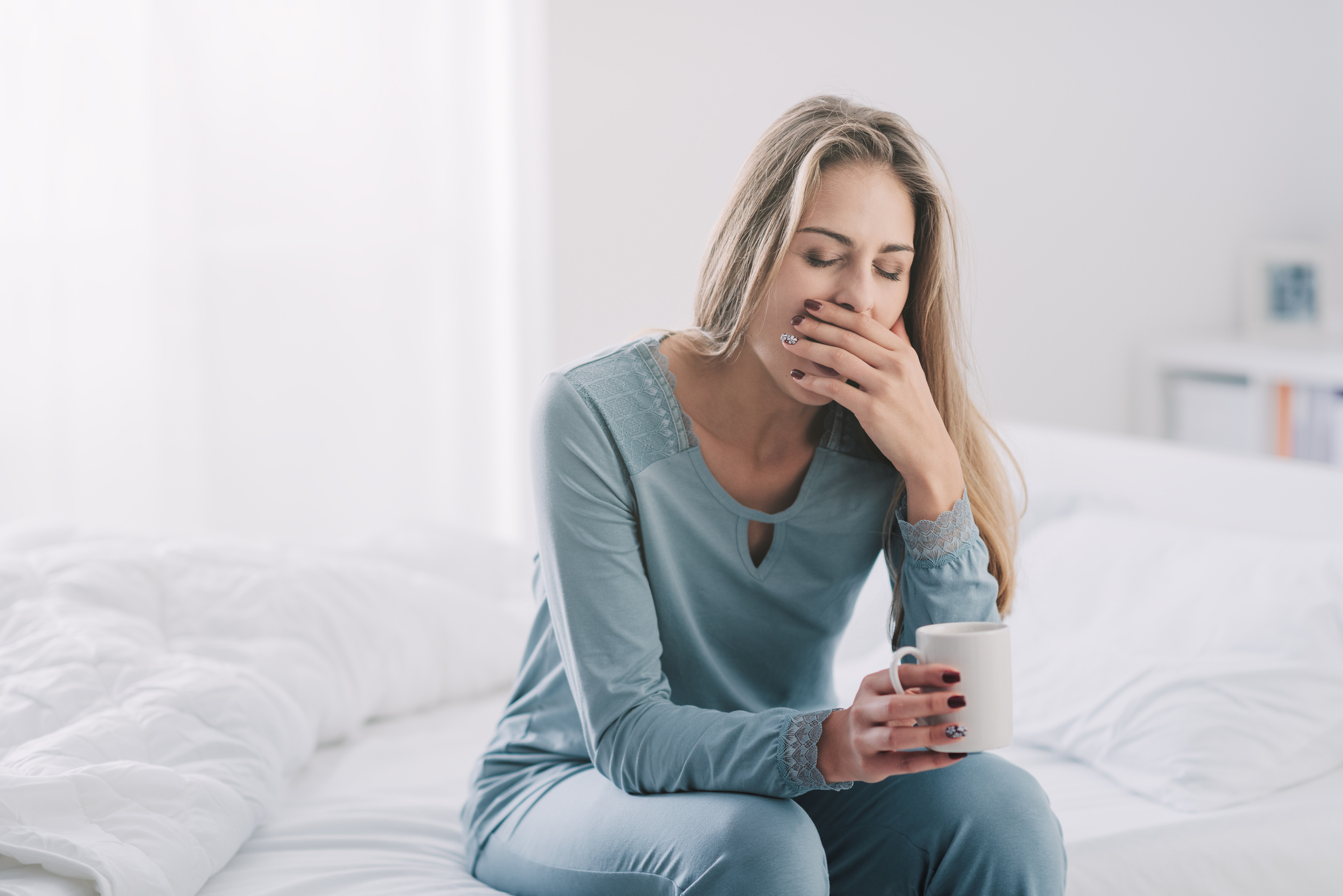Get Easy Health Digest™ in your inbox and don’t miss a thing when you subscribe today. Plus, get the free bonus report, Mother Nature’s Tips, Tricks and Remedies for Cholesterol, Blood Pressure & Blood Sugar as my way of saying welcome to the community!
Why caffeine spells trouble for your thyroid

Most of us have a morning routine that includes a cup of coffee to get going. Whether you accompany it with a big breakfast or just have it with a small bite of toast, you probably look forward to:
- Being more alert
- Having more energy
- A sense of well-being
But that cup or two of joe that you love so much could also be responsible for messing with the delicate hormone balance of your thyroid.
If you have already have thyroid problems, like an estimated 20 million Americans already do, you will need to pay special attention to the tip I give at the end of this article regarding caffeine and when to take your medication. But first, let’s discuss what your thyroid is, what it does and what to do about the problem of caffeine.
Your thyroid function
The thyroid gland is a butterfly-shaped organ responsible for making hormones that control your metabolism, or the way your body uses energy. These hormones regulate various body functions like your breathing, heart rate and body temperature.
If you suffer from hypothyroidism, meaning low thyroid, you likely have a combination of these symptoms:
- Trouble sleeping
- Tiredness and fatigue
- Difficulty concentrating
- Dry skin and hair
- Depression
- Sensitivity to cold temperature
- Frequent, heavy periods
- Joint and muscle pain
On the other hand, if your thyroid is overactive or you have hyperthyroidism, you will probably have a combination of the following symptoms, such as:
- Anxiety
- Irritability or moodiness
- Nervousness, hyperactivity
- Sweating or sensitivity to high temperatures
- Hand trembling (shaking)
- Hair loss
- Missed or light menstrual periods
If you have any of these problems, you could feel left out in the cold, with nowhere to turn for help after a visit to your doctor. You see, your family doctor is likely not well versed in the complex care needed to treat most thyroid conditions. Even most endocrinologists are challenged to find solutions to the problems associated with it. While they will usually offer to run your bloodwork, interpreting it is the real issue.
There is little consensus in the medical community on when someone has thyroid problems. If you are fortunate to find someone who will listen to you and offer to take a more non-traditional approach, you may find an advocate for your care. However, if they prescribe you any type of medication, you need to be aware of what interacts with the prescription, particularly caffeine.
Caffeine plus thyroid medication equals trouble
You see, if you’re already on any type of thyroid replacement prescription, drinking coffee within 60 minutes of taking it will result in decreased absorption of the medication. If you suffer from hypothyroidism, it’s especially important because this could mean that the awful tiredness you feel from the lack of thyroid hormones in your body could end up being amplified.
And then guess what? You drink more coffee to try to get through your day and end up in a cycle of chronic thyroid fatigue. To make matters worse, this extra caffeine also increases the levels of the stress hormone, cortisol, in your body leaving you completely exhausted and suffering from brain fog, sleep troubles and weight gain.
So, if you suffer from thyroid problems or worry that you might be developing one, watching your caffeine intake is vital to improving your health. Cut back on the coffee and make sure that if you do enjoy a cup to keep an hour between it and taking any thyroid medicines. For people with thyroid issues, less caffeine means more energy.
Editor’s note: Did you know that when you take your body from acid to alkaline you can boost your energy, lose weight, soothe digestion, avoid illness and achieve wellness? Click here to discover The Alkaline Secret to Ultimate Vitality and revive your life today!
Source:
Altered intestinal absorption of L-thyroxine caused by coffee–Thyroid













